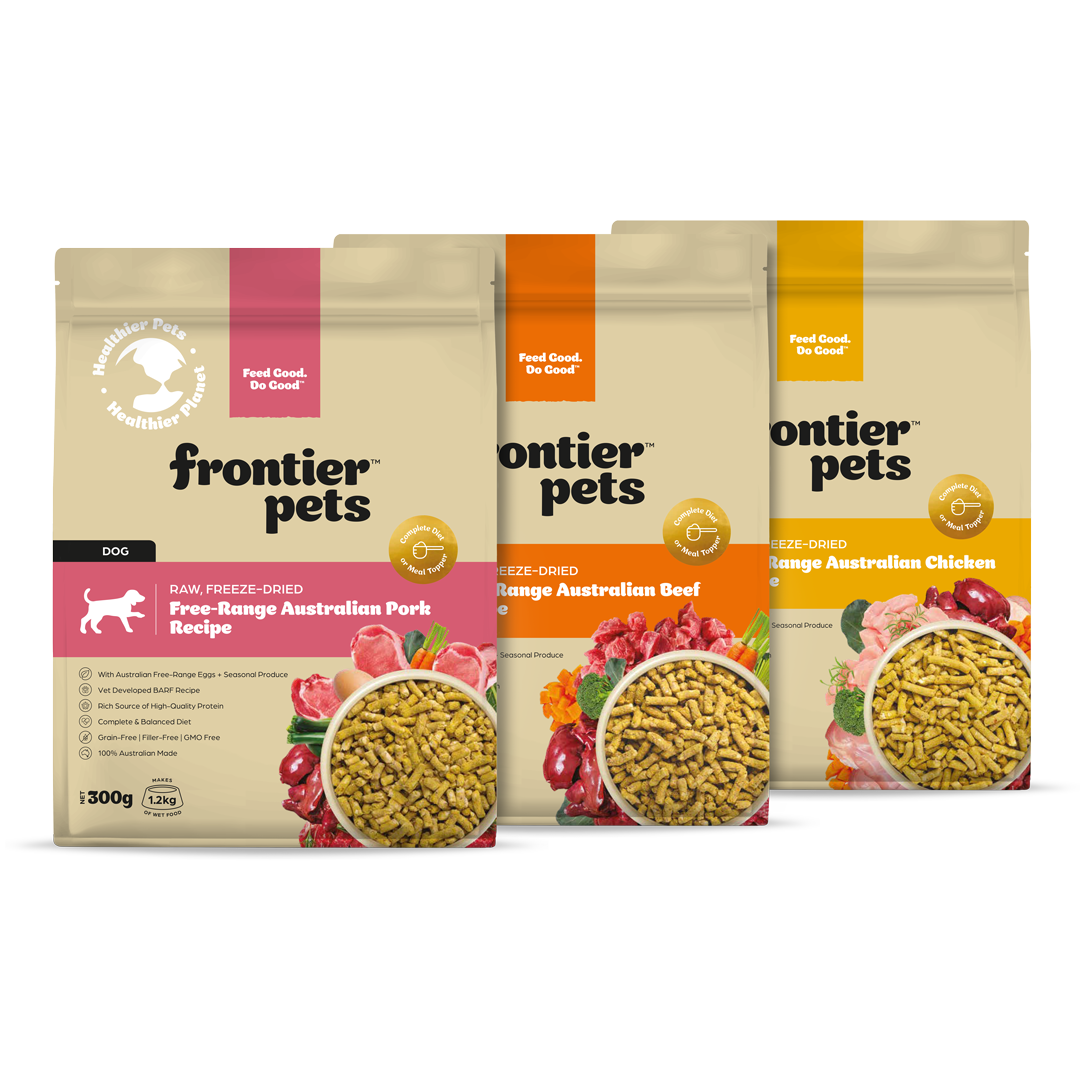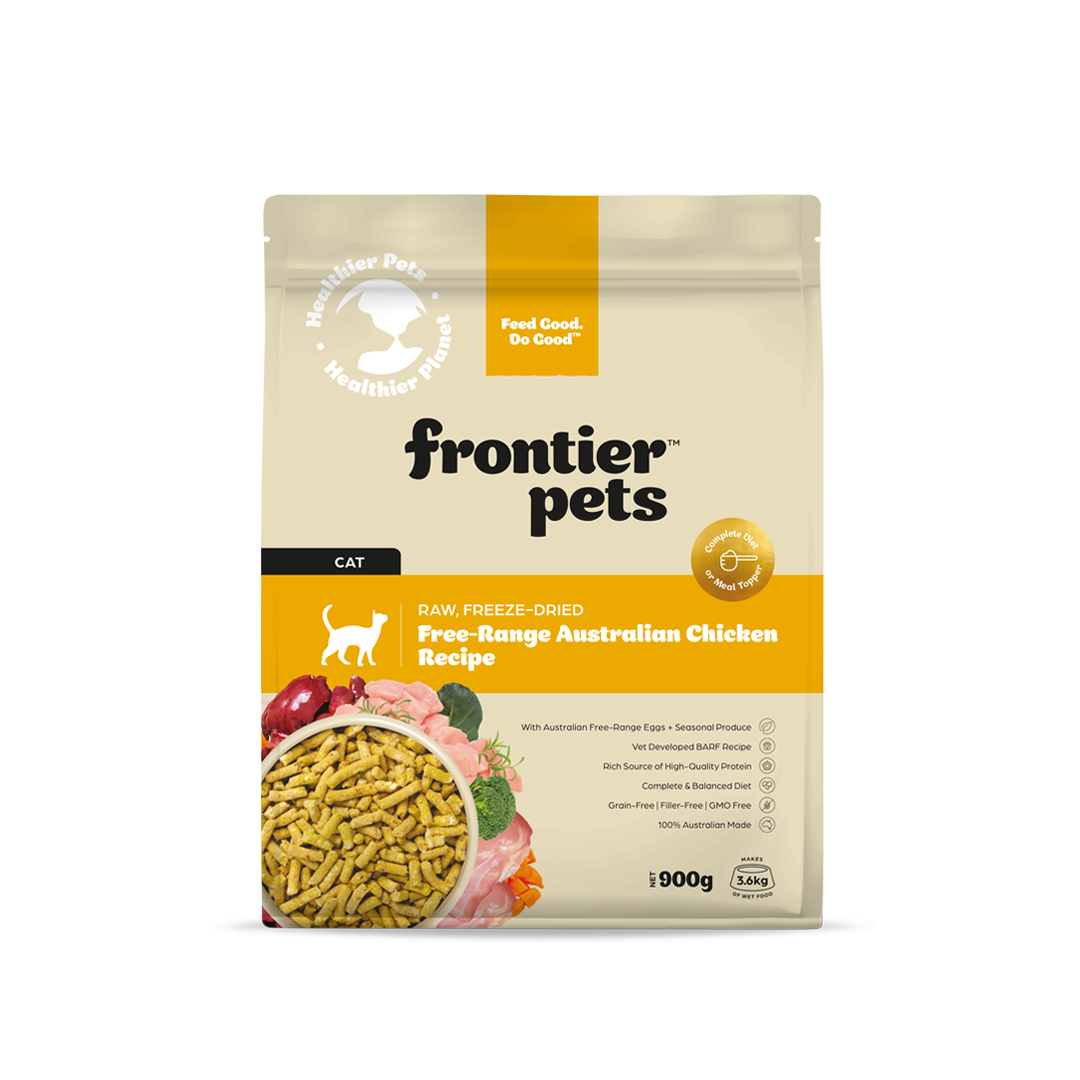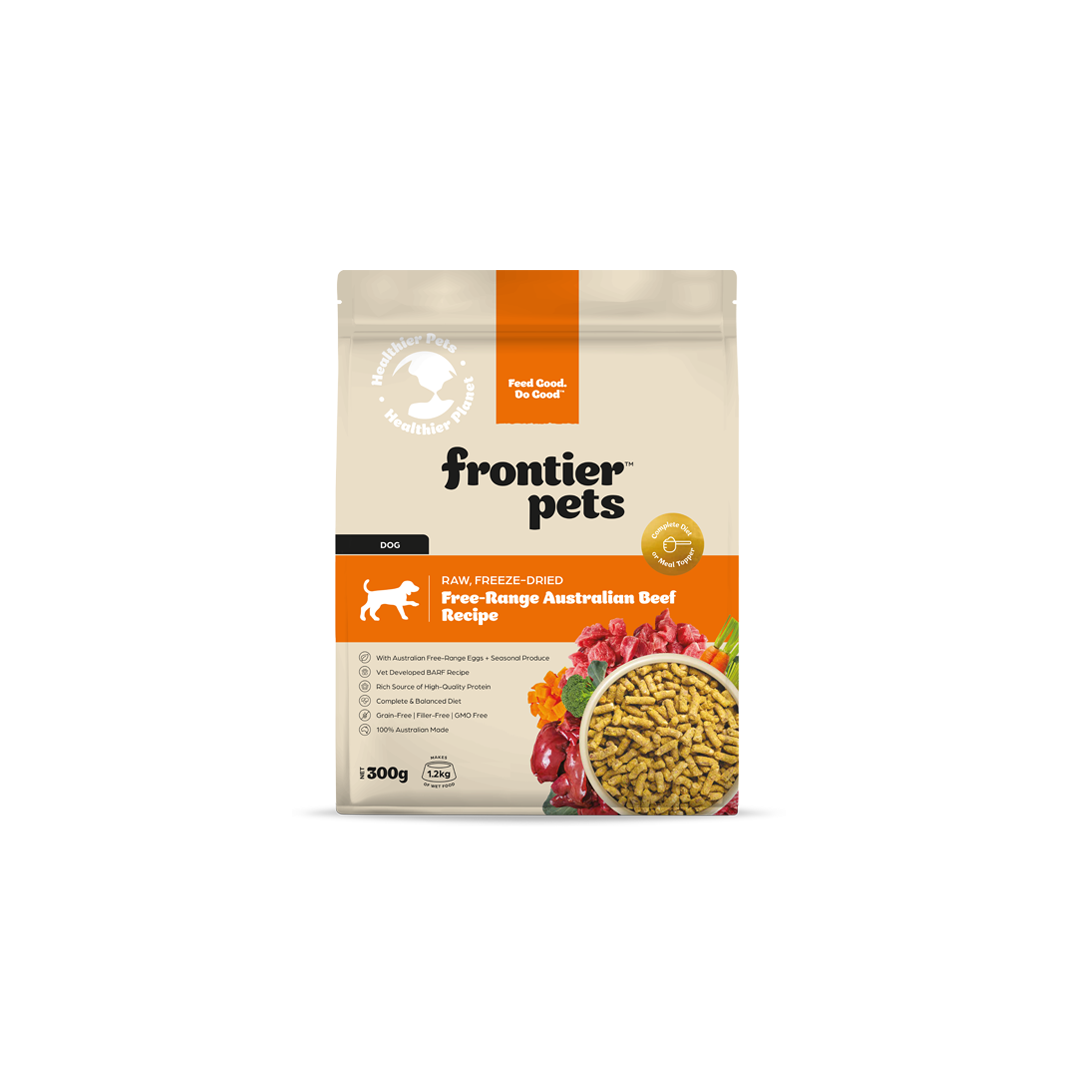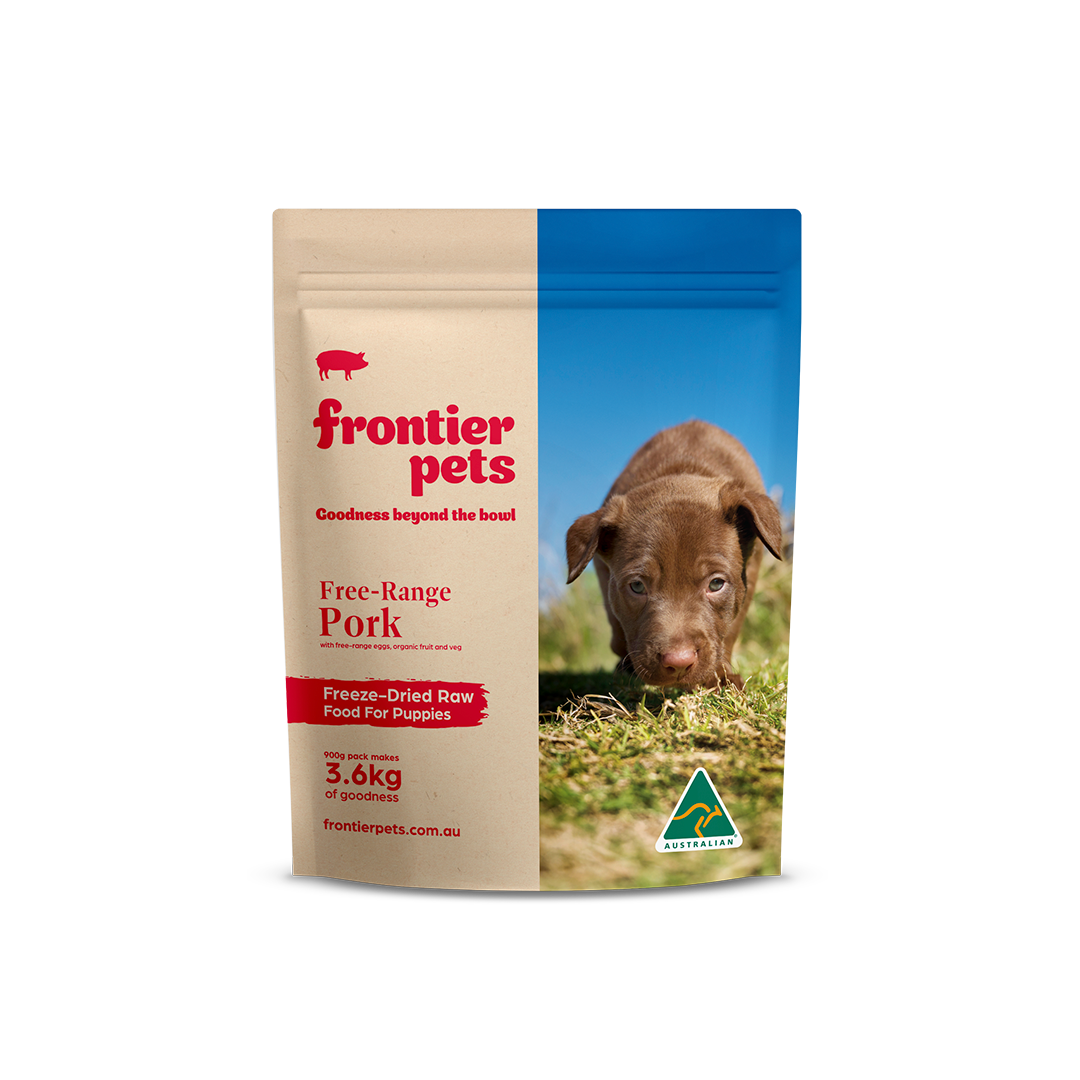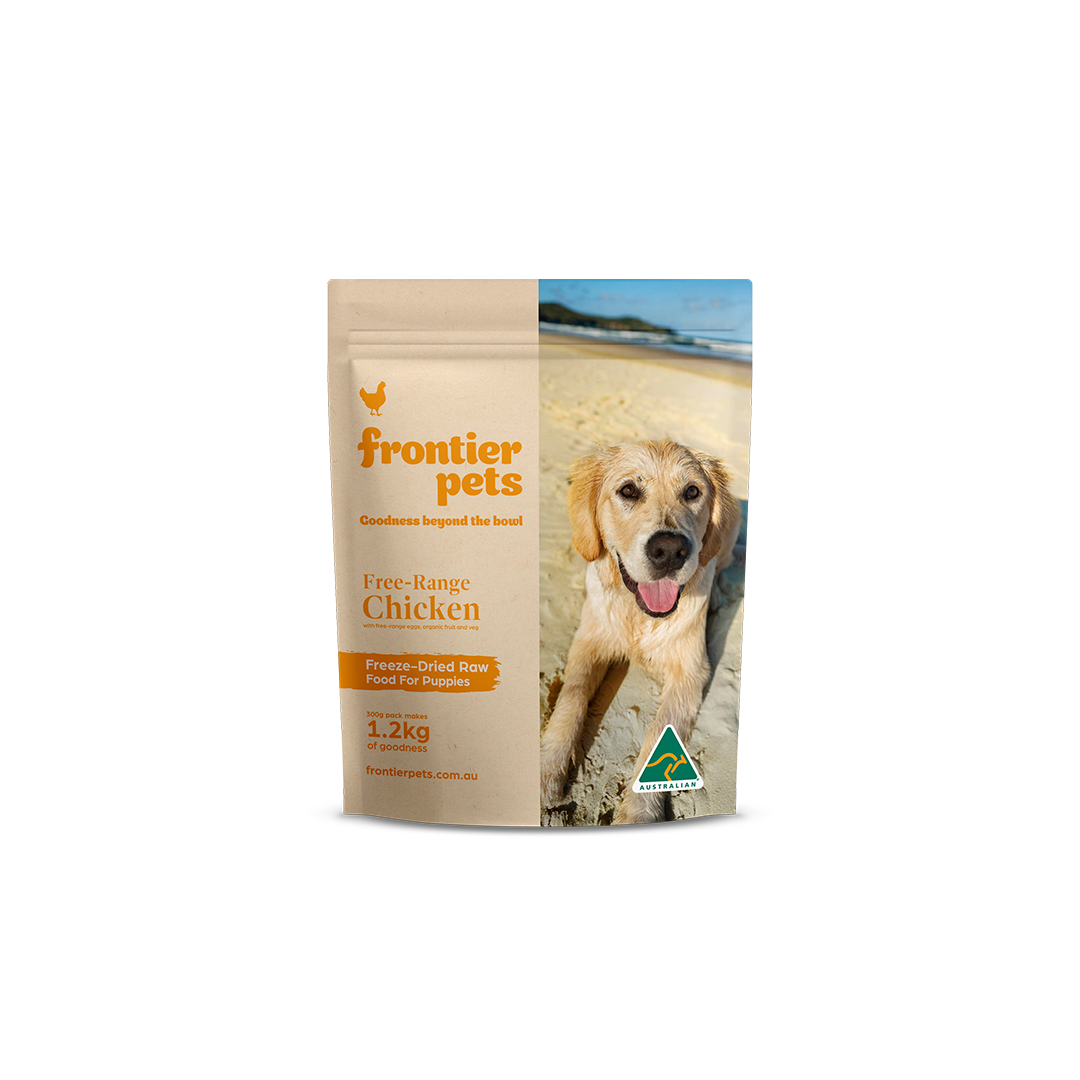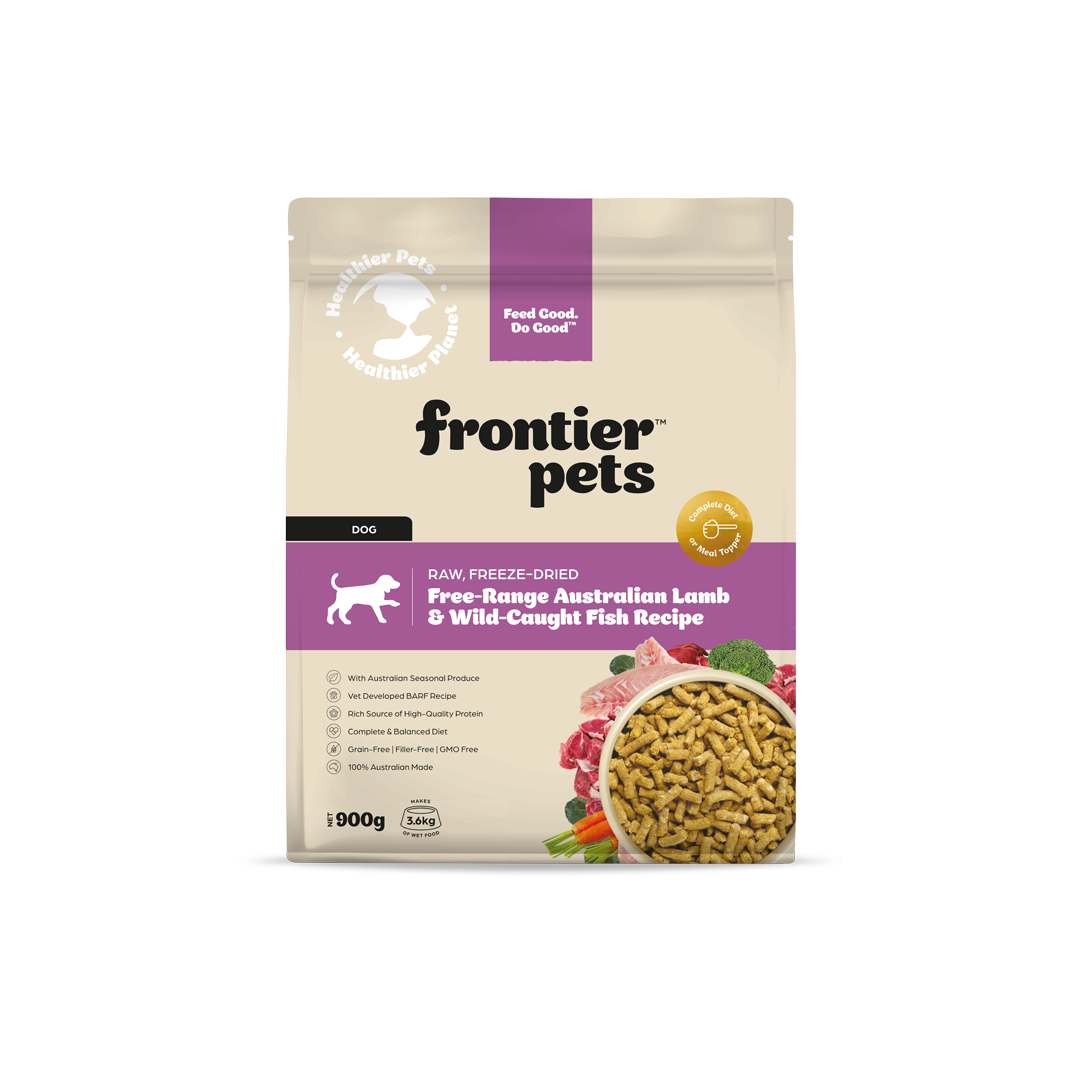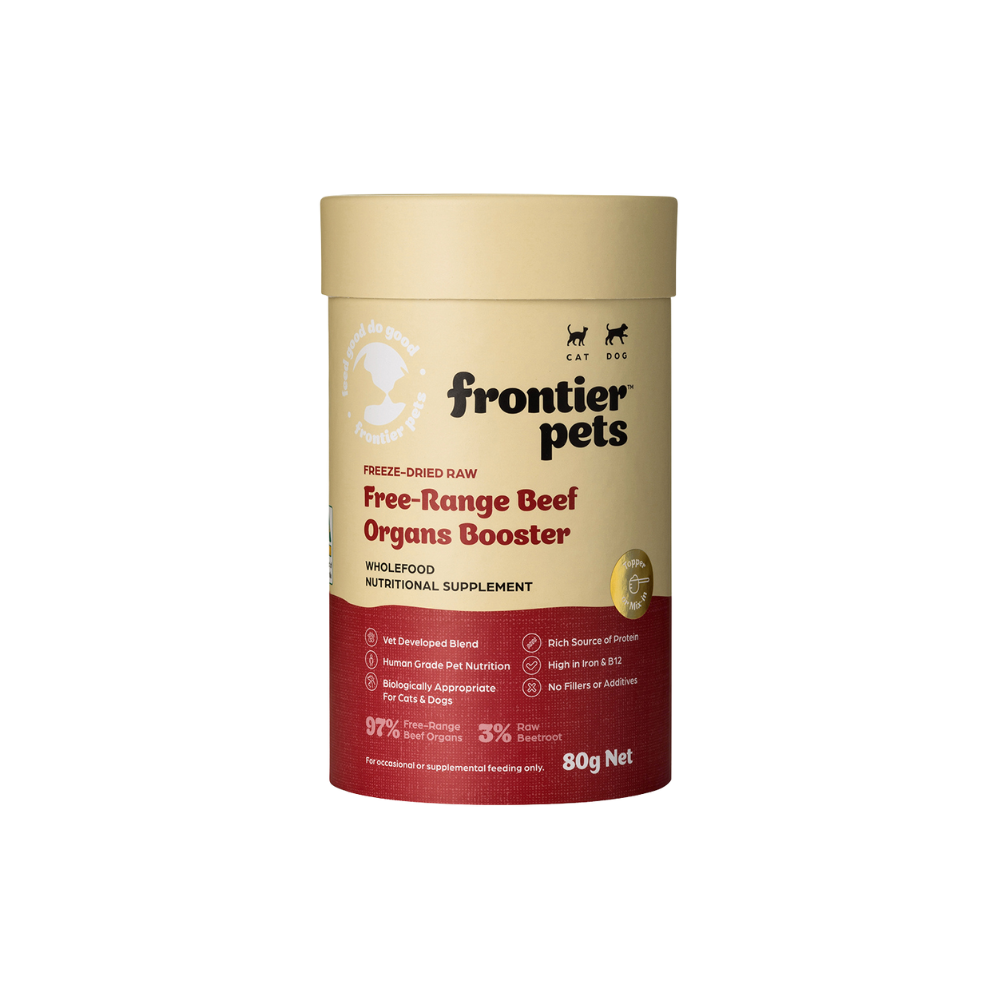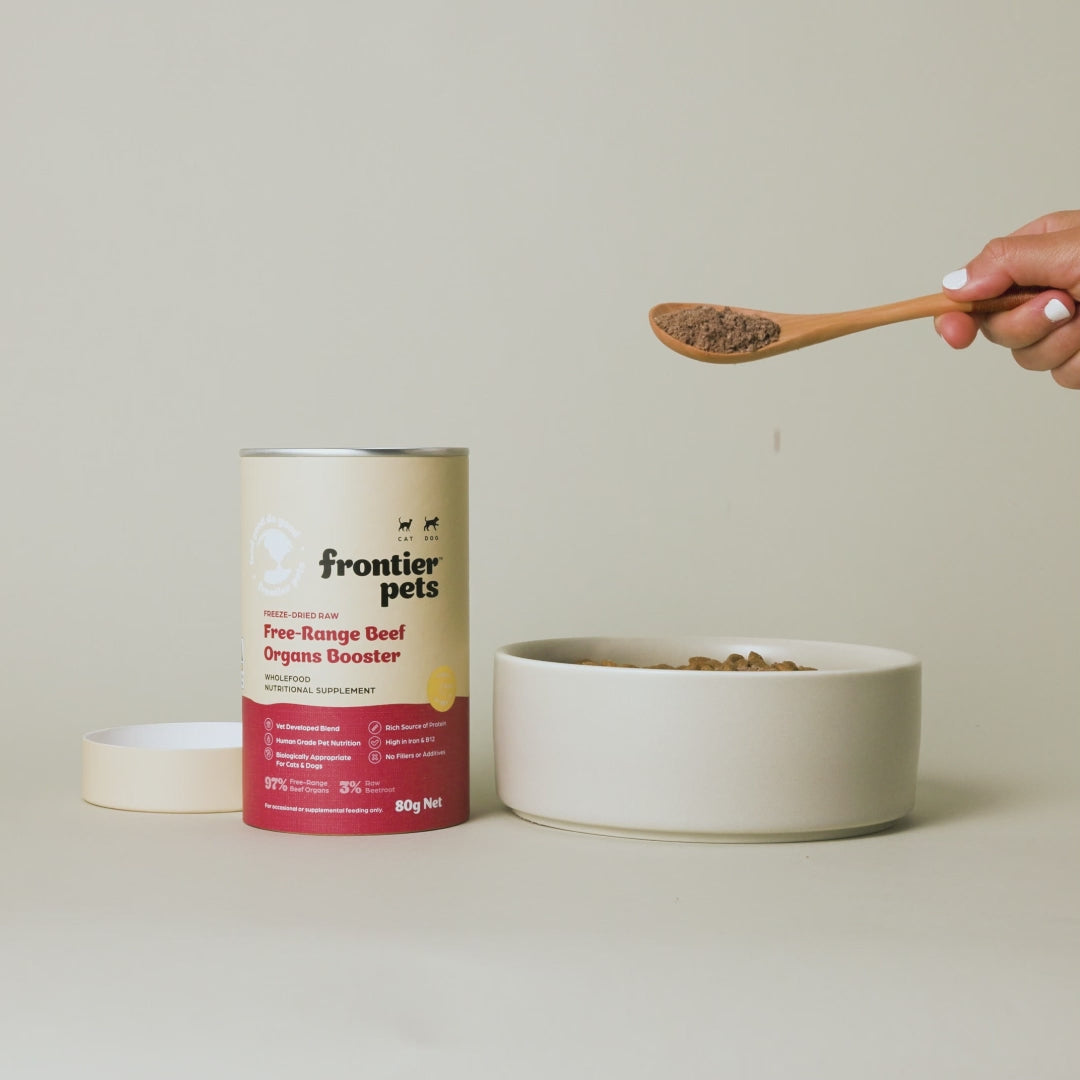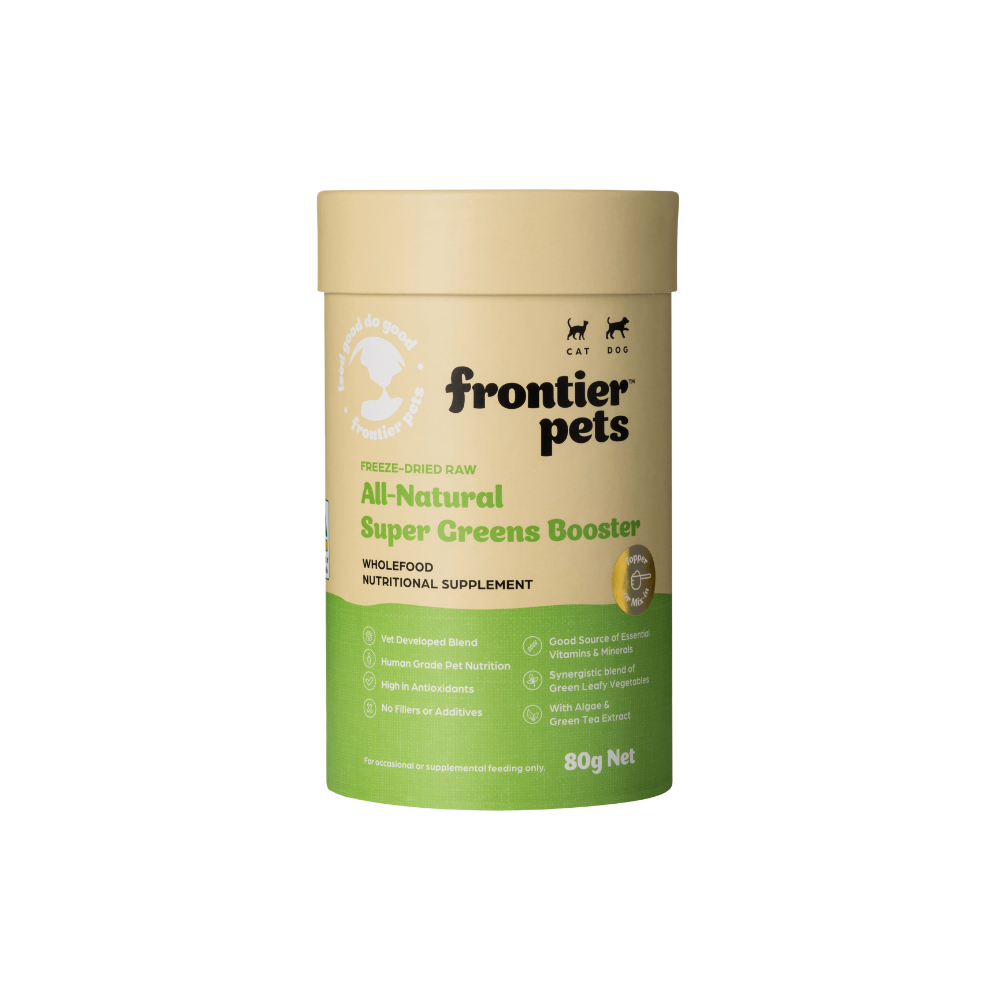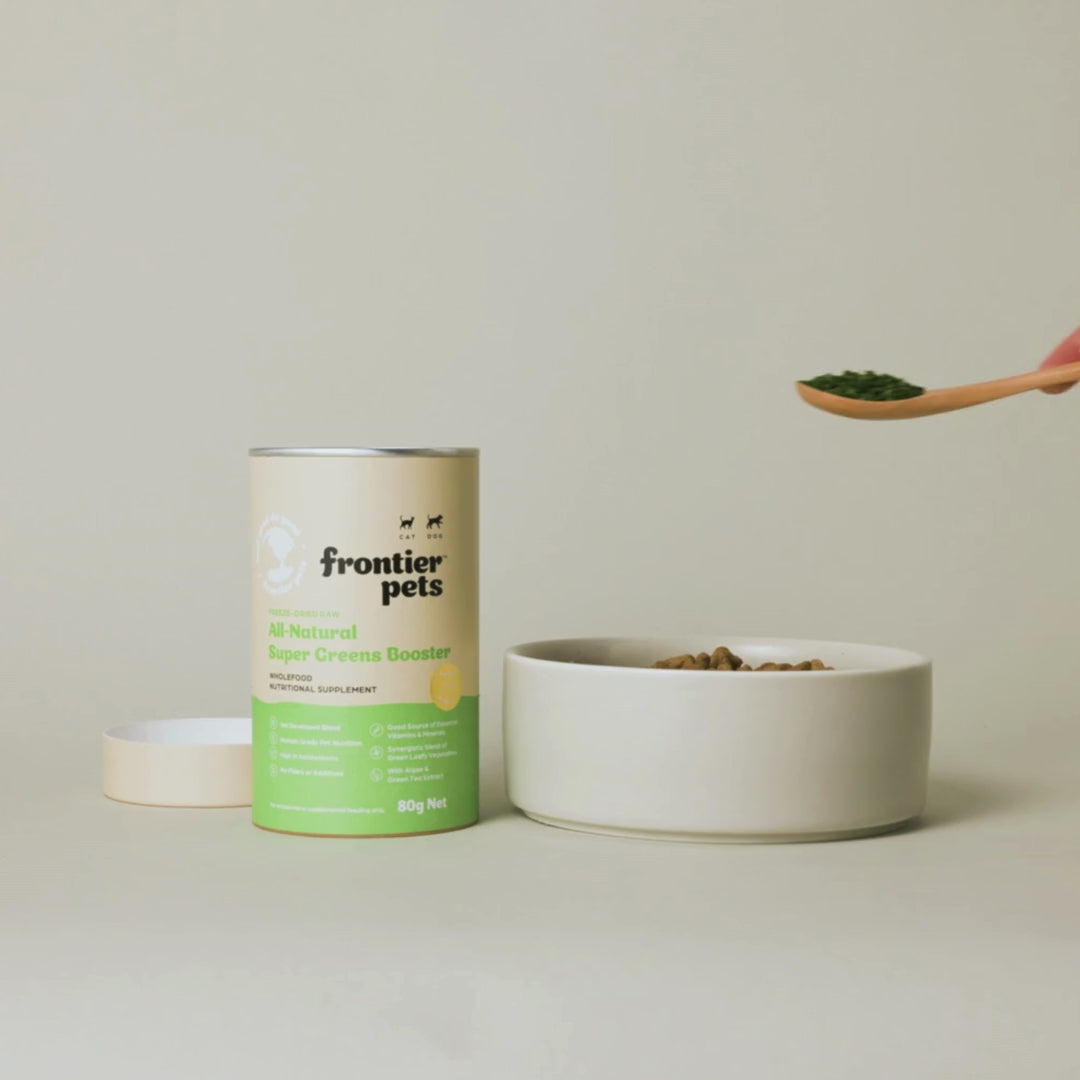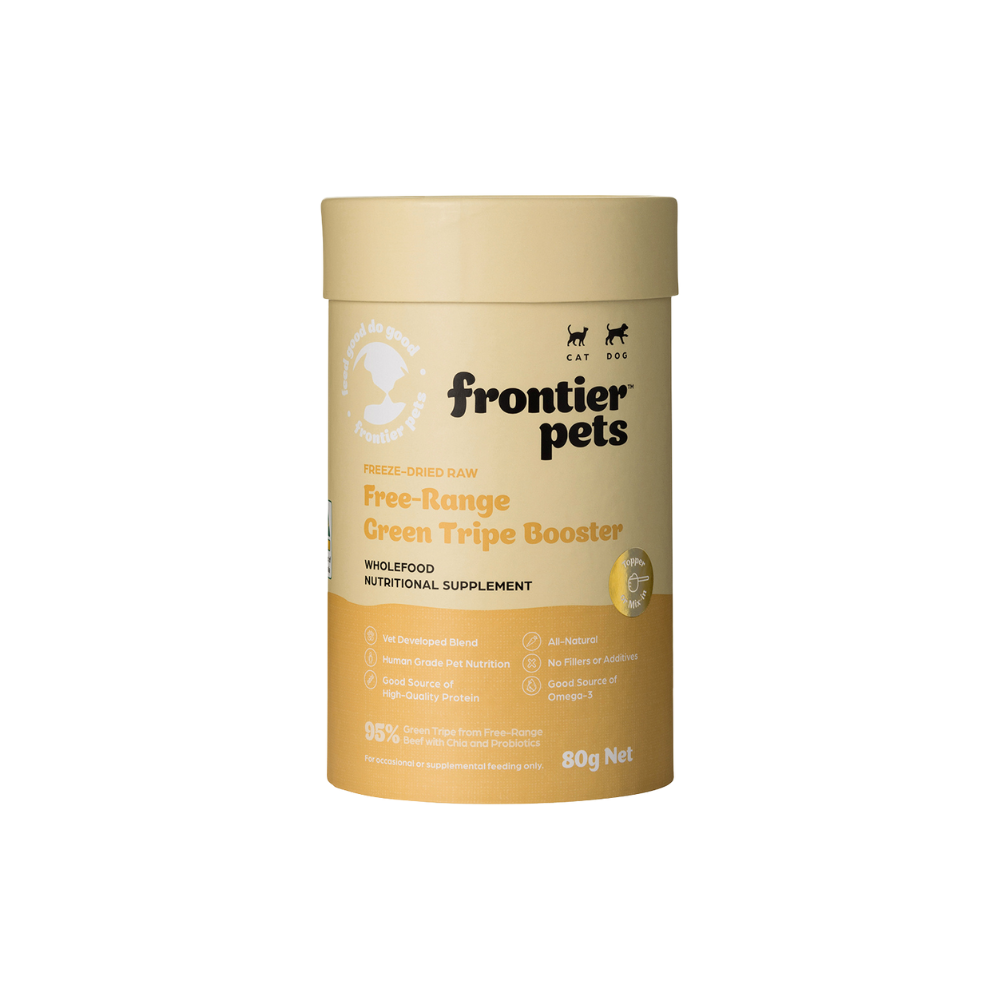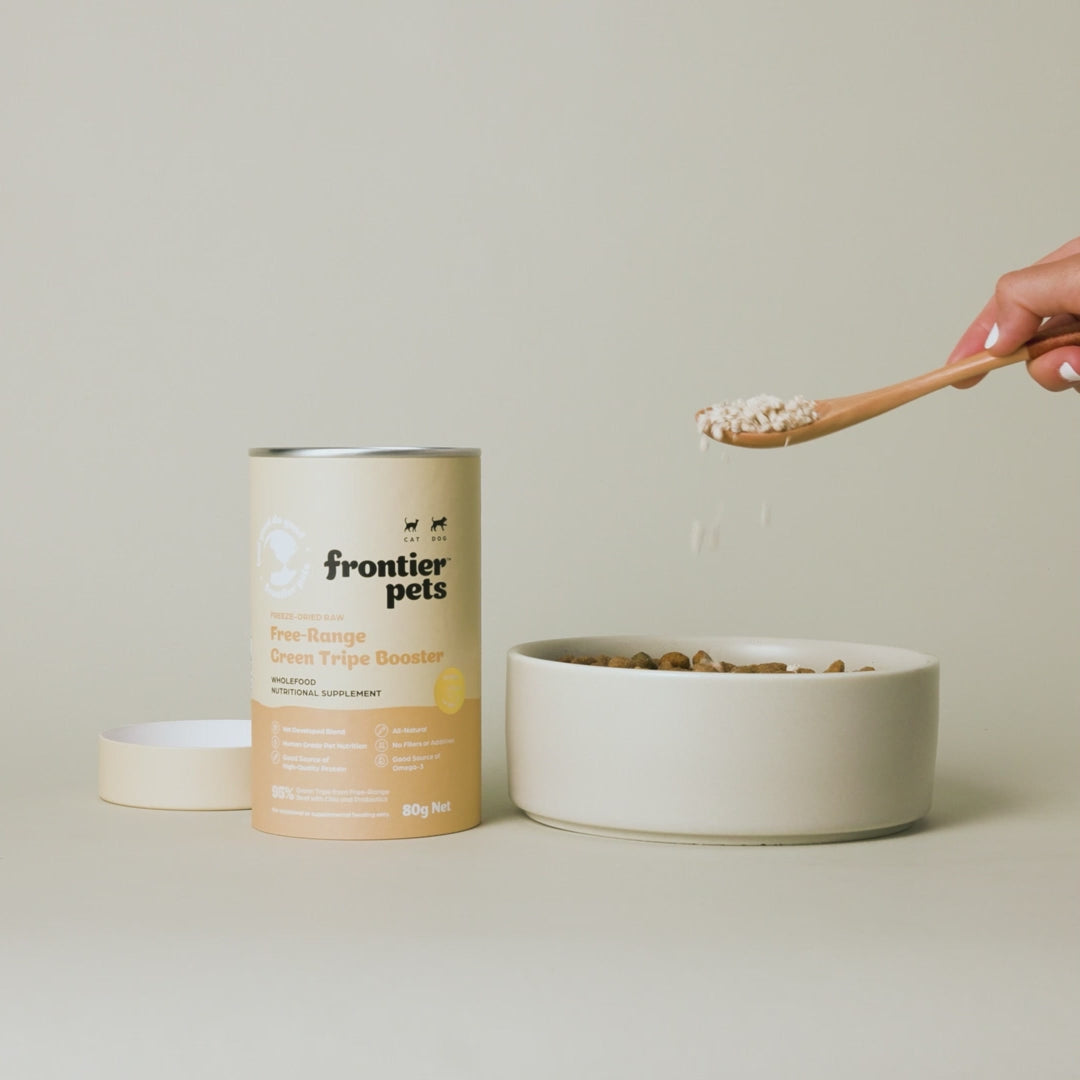Why Does My Dog’s Breath Smell?

Summary
No one loves doggy kisses when they come with bad breath. If you’ve ever wondered, "Why does my dog's breath smell so bad?", you’re not alone. Bad breath in dogs is a common issue, and while it’s often caused by plaque buildup or diet, it can sometimes signal something more serious.
In this guide, we’ll go over the most common causes of dog bad breath, simple ways to freshen it up, and when it might be time to see a vet. From brushing and diet changes to safe raw bones that help clean teeth naturally, here’s everything you need to know to keep your dog’s breath smelling fresh.
Key Takeaways:
-
Bad breath in dogs is often caused by plaque buildup, diet, or digestive issues, but can sometimes signal a more serious health problem.
-
Regular brushing, safe chew options like raw bones, and high-quality food can help prevent bad breath.
-
Kibble does not clean teeth as well as raw bones or species-appropriate diets.
-
If your dog’s breath smells sweet, like ammonia, or extremely foul, it may indicate an underlying health issue like diabetes, kidney disease, or liver disease.
-
Seeing a vet for dental checkups and professional cleanings can help maintain good oral health.
What Causes Bad Breath in Dogs?
There are a few different reasons your dog’s breath might smell, some of which are easy to fix, while others may require a vet visit.
1. Poor Dental Hygiene and Plaque Buildup
Just like people, dogs need regular dental care. When plaque and tartar buildup on their teeth, it creates the perfect environment for bacteria to grow, leading to bad breath, gum disease, and eventually, tooth decay. If left untreated, this can become painful and cause infections that make your dog’s breath smell even worse.
2. Diet and Digestive Issues
What your dog eats plays a big role in how their breath smells. If they’re eating low-quality food, lots of table scraps, or things they shouldn’t be eating (like from the rubbish bin), it can lead to digestive issues that contribute to bad breath. A diet high in artificial fillers or carbohydrates can also create an imbalance in your dog’s gut, which can sometimes be the root cause of bad breath.
3. Oral Health Problems Beyond Plaque
Sometimes bad breath isn’t just about plaque. If your dog has an infection, an abscessed tooth, or something stuck in their mouth, it can start to smell bad. Other times, ulcers or growths in the mouth can lead to an ongoing bad odour. If your dog’s breath smells worse than usual and doesn’t improve with home care, it’s a good idea to check inside their mouth or take them to the vet.
4. Bad Breath Could Be a Sign of an Underlying Health Issue
Bad breath that suddenly gets worse or smells particularly strong could be a sign of a more serious health problem. For example, breath that smells sweet or fruity could indicate diabetes, while breath that smells like ammonia or urine could point to kidney disease. Liver disease can also cause a musty, foul-smelling breath. If your dog’s breath smells different than usual and you notice changes in their drinking habits, appetite, or energy levels, it’s best to get them checked out.
How to Prevent Bad Breath in Dogs
The best way to keep your dog’s breath fresh is to take care of their teeth and make sure they’re eating a healthy, species-appropriate diet.
1. Brush Your Dog’s Teeth
Brushing your dog’s teeth is one of the most effective ways to prevent plaque buildup and keep their breath fresh. It doesn’t have to be daily, but brushing a few times a week can make a big difference. Always use dog-friendly toothpaste, since human toothpaste contains ingredients that can be harmful to dogs.
2. Give Them Dental Chews and Natural Chewing Options
If brushing isn’t always possible, providing safe chew options can help keep their teeth clean. Dental chews, freeze-dried treats, and raw bones can all help remove plaque while satisfying their natural urge to chew.
3. Schedule Regular Vet Checkups and Dental Cleanings
If plaque and tartar buildup become too severe, a professional cleaning might be needed. This is especially important for older dogs or those with a history of dental problems.
4. Feed a High-Quality Diet That Supports Oral Health
A healthy diet plays a huge role in keeping your dog’s teeth and breath in good shape. Foods that are high in carbohydrates or artificial additives can contribute to plaque buildup and digestive issues, which in turn can cause bad breath.
A species-appropriate diet, like Frontier Pets freeze-dried raw food, is high in protein, low in carbohydrates, and made with real, whole-food ingredients that naturally support better digestion and oral health.
5. Try Natural Remedies to Freshen Breath
If your dog’s breath needs a little extra help, there are some natural ways to freshen it up:
-
Parsley or mint – Both herbs have natural antibacterial properties that can help neutralize bad breath.
-
Raw carrots or apples – Their crunchy texture helps scrape plaque off teeth naturally.
-
Water additives – These contain enzymes that help break down plaque while keeping your dog hydrated.
Home Remedies for Dog Bad Breath
If your pup’s breath has become less-than-pleasant, you can take simple and natural steps to freshen it up while supporting their overall oral health. Incorporating safe, chewable options like raw bones can be especially beneficial. Here are some effective remedies:
- Adding Parsley or Mint to Meals: Adding a small amount of fresh parsley or mint to your dog’s food is an easy way to neutralize bad breath. Both herbs have natural antibacterial properties and a refreshing scent that helps combat odour.
- Raw Carrots or Apples: Crunchy snacks like raw carrots or apple slices act as natural toothbrushes for dogs. Their texture helps scrape away plaque while being safe and healthy for your pet to enjoy.
- Add Water: Specially formulated water additives can be added to your dog’s drinking bowl to combat dog plaque and tartar. These additives often contain enzymes that break down bacteria and freshen breath.
- Safe Raw Bones for Chewing: Raw bones are one of the best natural remedies for improving your dog’s oral health and freshening their breath. Chewing on raw bones helps remove plaque and tartar while providing mental stimulation and satisfaction. It’s important to choose the right type and size of bone for your dog to ensure safety.
Safe Raw Bones to Consider:
- For Small Dogs: Chicken necks, duck necks, or chicken wing tips are great options. These softer, smaller bones are easier for small breeds to chew safely.
- For Medium-Sized Dogs: Turkey necks, or Chicken necks are suitable for medium-sized dogs. These bones provide a balance between durability and chewability.
- For Large Dogs: Beef knuckle bones, marrow bones, or lamb femurs are ideal for larger breeds. These are strong enough to handle a powerful bite and last longer.
Safety Tips for Raw Bones
- Always choose raw, not cooked bones, as cooked bones can splinter and cause injury.
- Supervise your dog while they chew to prevent choking or overconsumption.
- Remove the bone once it becomes small enough to swallow or after a chewing session of 15-20 minutes to avoid tooth wear.
- Incorporating safe raw bones as part of your dog’s dental care routine not only combats bad breath but also supports strong teeth and gums. Combined with the other natural remedies above, raw bones can be a game-changer for your dog’s oral hygiene.
Debunking the Kibble Myth
The idea that kibble promotes good oral health is a convenient marketing tactic rather than a scientifically proven fact. In truth, relying on kibble for dental hygiene can lead to long-term dental problems and more serious health concerns. Switching to a high-quality, species-appropriate diet and prioritising dental care can help ensure your dog lives a longer, healthier life—free from the complications caused by kibble. Remember, investing in your dog’s oral health now can save you and your furry friend from pain and costly treatments in the future.
When to See a Vet for Dog Bad Breath
While mild cases of bad breath are often resolved with improved dental care, persistent or severe odours may require a professional evaluation. Bad breath can sometimes indicate serious oral health issues, such as tooth decay or rotten teeth, which need veterinary attention to prevent pain and further complications.
Signs of dental disease in dogs include:
- Red, swollen, or bleeding gums: These are early indicators of gum disease.
- Difficulty eating: Pain from decayed or damaged teeth may cause your dog to avoid food.
- Loose or missing teeth: Advanced dental issues can lead to tooth loss and infections.
If your dog's bad breath persists, especially if accompanied by any of these signs, it’s essential to schedule a dental check-up with your veterinarian. During the exam, your vet can identify and address problems like decayed or rotten teeth, which could be the root cause of the odour. Additionally, if you notice unusual breath odours—such as sweet, fruity smells or an especially foul stench—it could indicate underlying health problems like kidney disease, liver issues, or diabetes. Prompt veterinary consultation is crucial to rule out these serious conditions and ensure your dog’s well-being.
Final Thoughts
Bad breath in dogs is usually caused by poor dental hygiene, diet choices, or oral health issues, but it can also be a sign of something more serious. The good news is, with regular brushing, a high-quality diet, safe chew options, and routine vet visits, you can help keep your dog’s mouth clean and their breath fresh.
If you want to take the easiest approach to better oral health, consider switching to a raw diet and incorporating safe raw bones for chewing. Making these simple changes can do wonders for your dog’s breath—and their overall health.
Frequently Asked Questions (FAQs)
More Blog posts
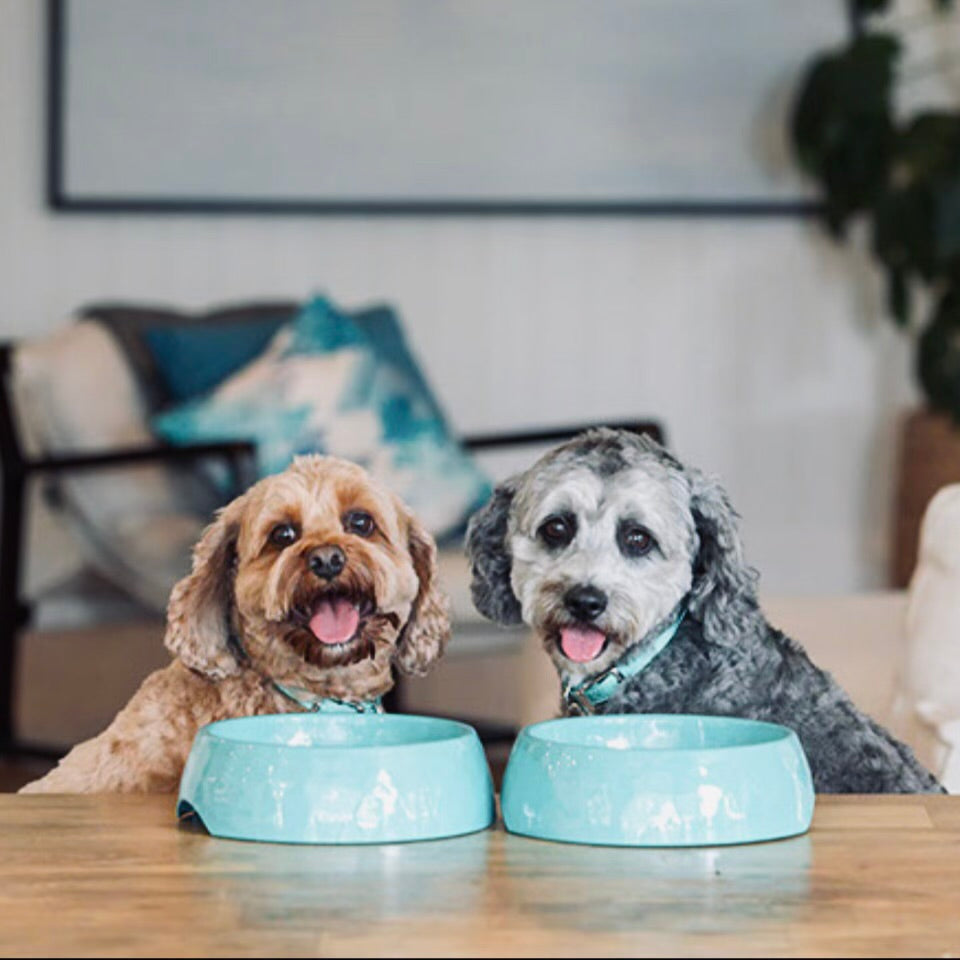
Best Low Maintenance Dog Breeds in Australia
Choosing your new fluffy companion is never easy. There is a wide range of considerations that go into finding the perfect pup for you! From your lifestyle to your living arrangements, it’s importa...
Read more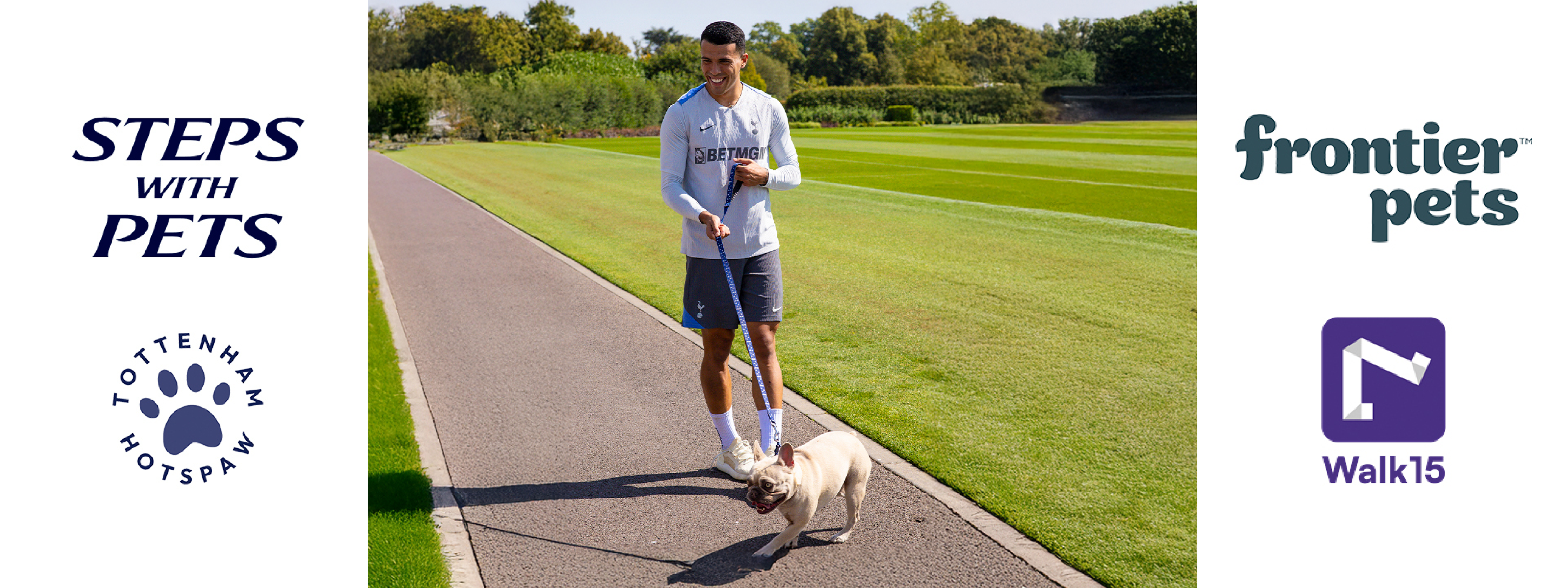
Steps With Pets Charity Challenge, August-September 2025
Steps with Pets – Tottenham Hotspur’s global charity dog-walking challenge, supported by Frontier Pets Calling all dog-loving Spurs fans around the world! This is your chance to combine your pass...
Read more
